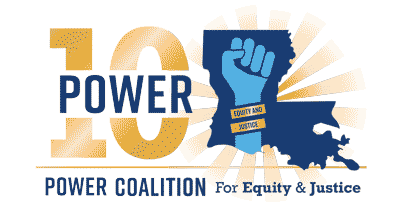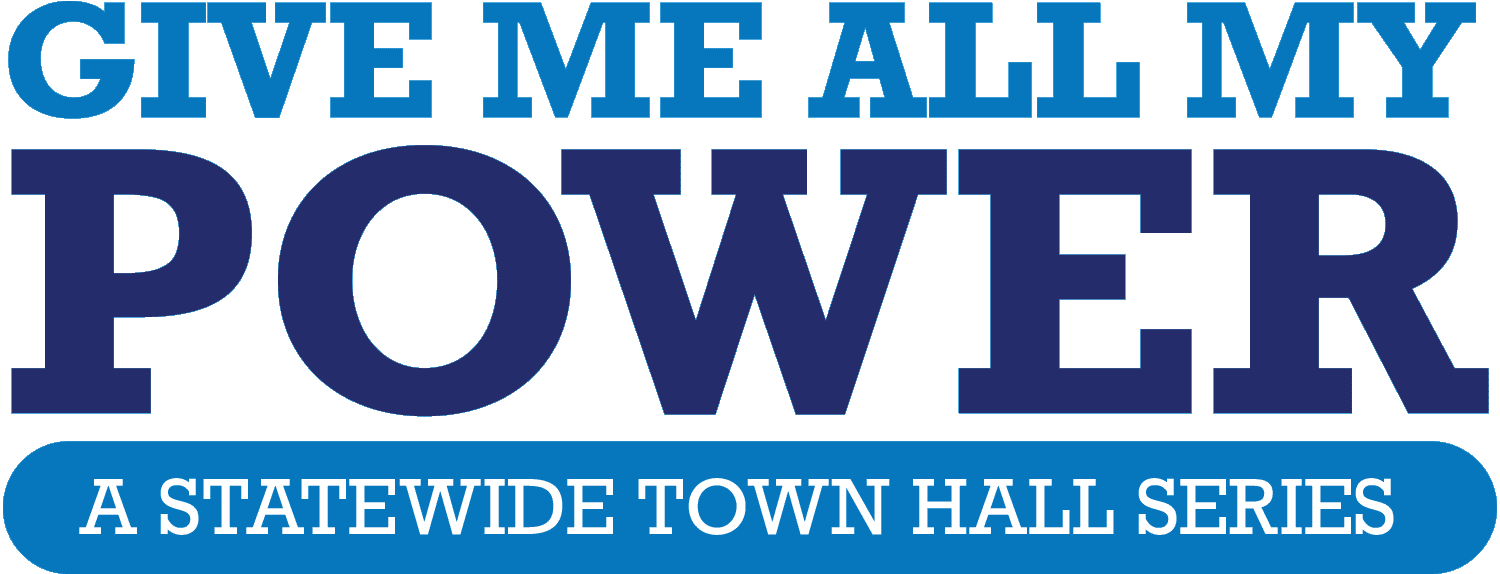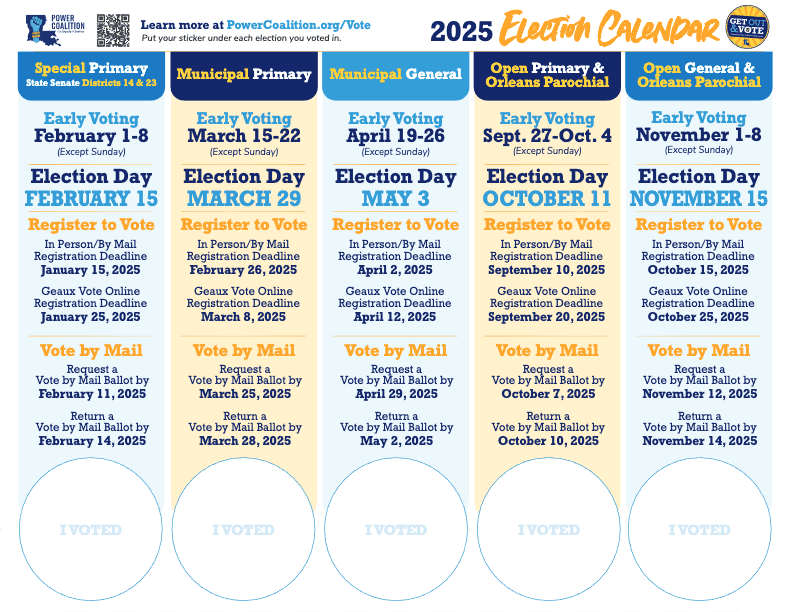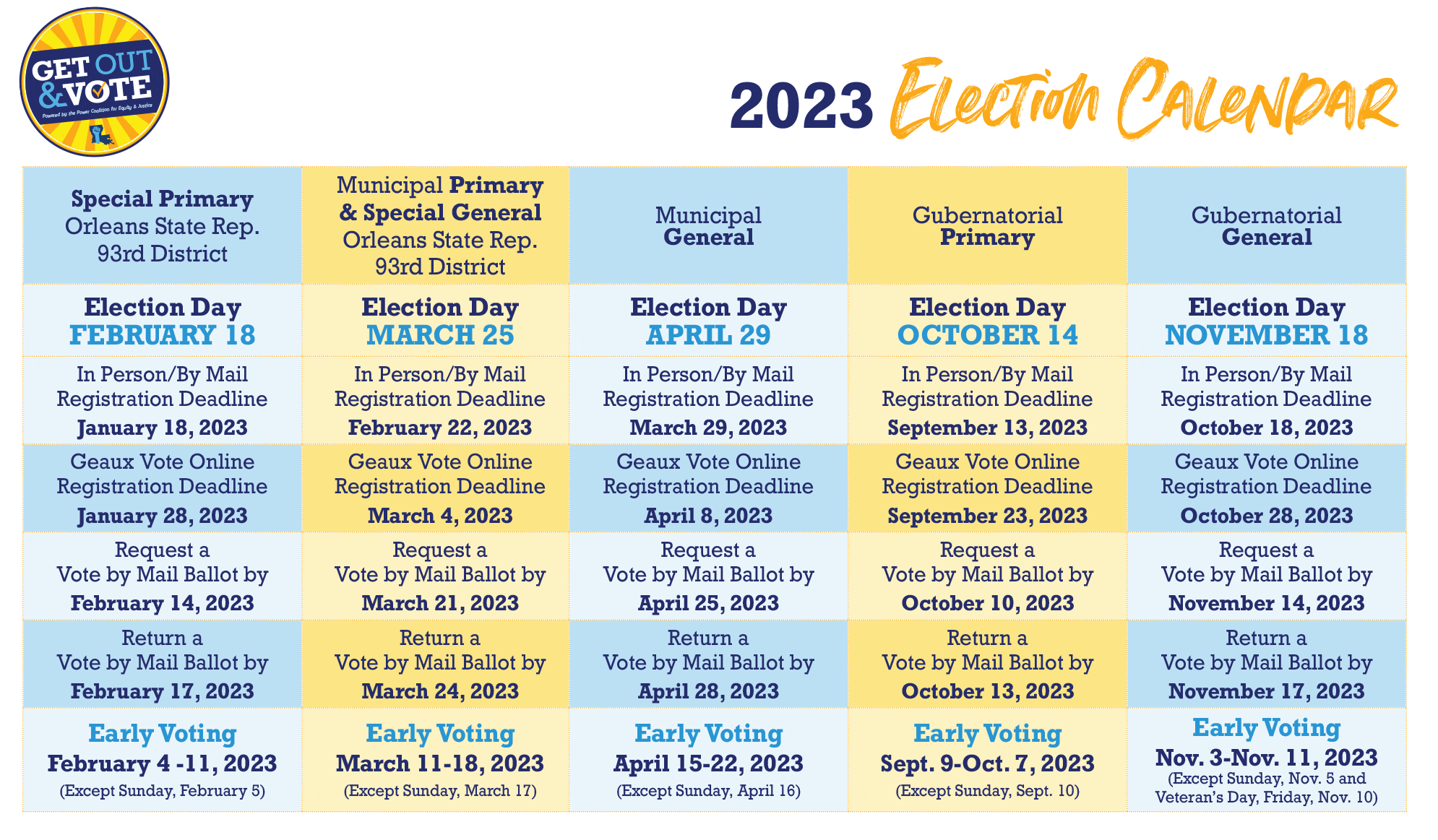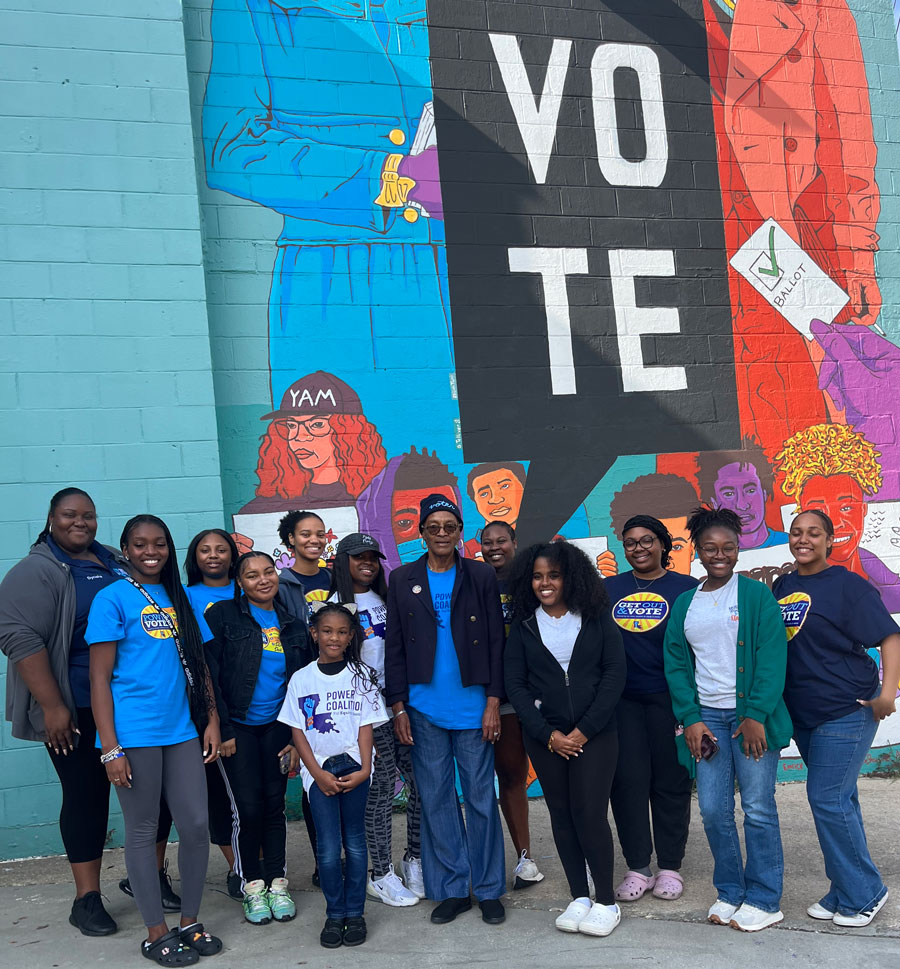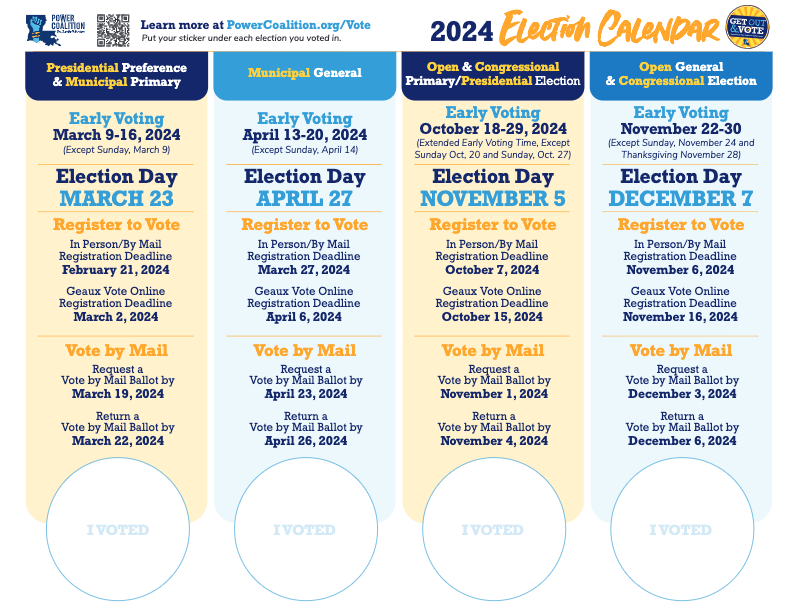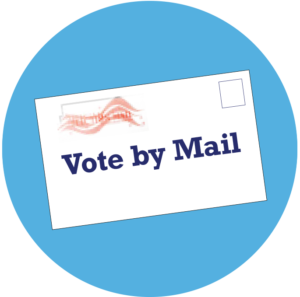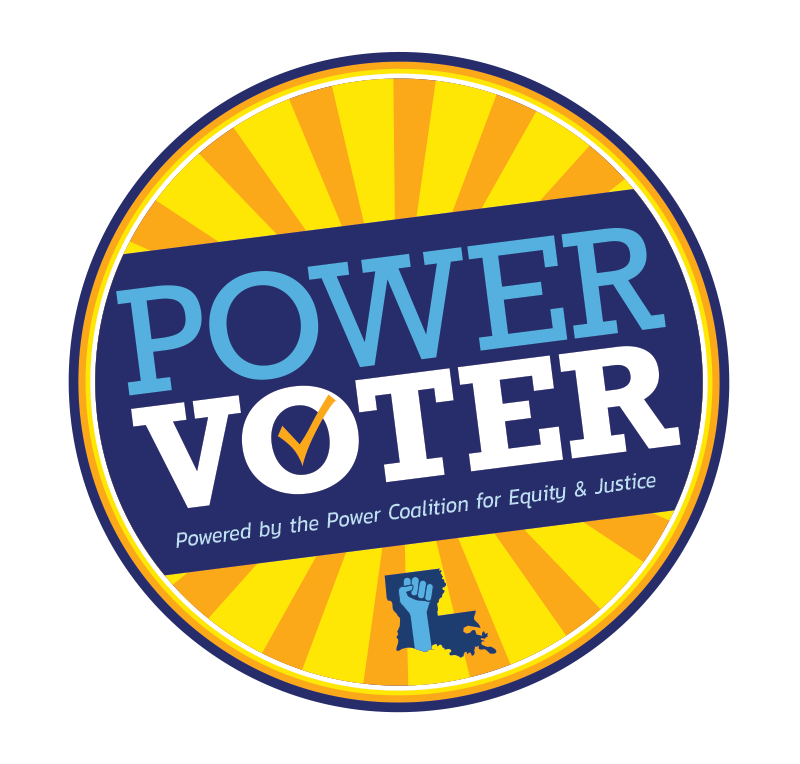Special Primary State Senate District 3-Deadline to Register to Vote In Person or By Mail
Special Primary State Senate District 3- Deadline to Register Online
- Check and Update Your Voter Registration Status
- How to Register to Vote Online
- Join Us at an Event!
- Faith MiniGrants
- Volunteer
- Volunteer to Give a Ride to the Polls
- Want to Host a Voter Registration Drive?
- Want to Request GOTV Materials for Your Event?
- School Guidance on Voter Registration Activities
Check your voter registration status!
Find out your:
- Party Affiliation
- Parish
- Ward/Precinct
- Status
- Where to Vote
- Your Sample Ballot
- & More!
Special Primary State Senate District 3-Early Voting
(excluding Sunday and Thanksgiving)
Special Primary State Senate District 3-Deadline to Turn In an Absentee Ballot
Special Primary State Senate District 3-Deadline to Request an Absentee Ballot

Special Primary State Senate District 3-Election Day
You must bring ONE of the following:*
- Driver’s license
- Louisiana Special ID*
- LA Wallet Digital Driver’s License
- A recognized picture ID that contains your name and signature
* A Louisiana Special ID can be obtained at the Office of Motor Vehicles by showing your voter information card. If you have misplaced it, you can print a new one online at geauxvote.com or request one from your registrar of voters.
- Vote in every election
- Hold your elected officials accountable
- Stand in Your Power
Frequently Asked Questions
Formerly Incarcerated People
High School Students
College Students and Voting
Disabled Persons FAQs and Resources
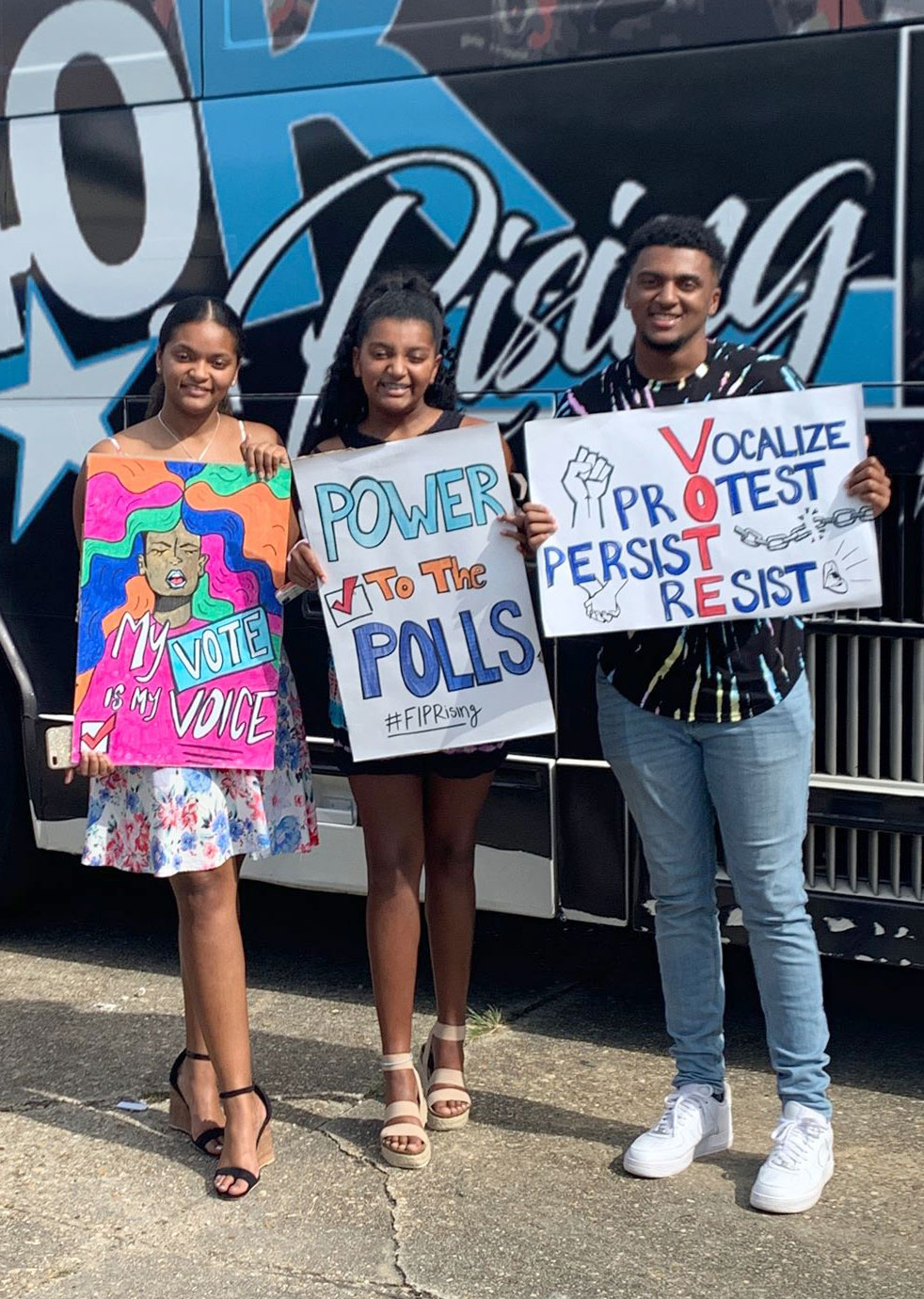
They are:
1. Expand economic opportunity
When new jobs actually come to your community, do those jobs pay living wages and offer the benefits you need to provide security for you and your family? Do they pay everyone the same, regardless of gender or race? Do you, your family, and your community have equal access to quality healthcare and education? Sadly, in Louisiana, the answer to those questions is usually ‘No’. When we talk about economic opportunity, we have to make sure that opportunity is real and that it includes every person and every community.
2. Continued and sustained criminal justice reform
Despite many recent successes in reforming the criminal justice system, Louisiana still has one of the highest incarceration rates in the world. Is that truly “just”? We need to build on those successes so we can make sure that the word “Justice” truly is at the heart of our criminal justice system.
3. Prioritize fiscal fairness
Did you know that in Louisiana wealthy people actually pay a much smaller tax burden than low- and moderate-income earners? Did you know that we give away 10 times more in corporate welfare per person than the national average, with much of that money going to major polluters? If we want to create an economy that works for all of us, then we need to turn that inequitable tax system on its head.
4. Ensure fair, equitable electoral districts
Do you think the political process in Louisiana is functioning properly? Most people don’t, and redistricting is at the core of that dysfunction. To fix this broken system, we’re going to need to work toward a full and proper count during the 2020 Census, which will inform (and hopefully help ensure) a fair, equitable, and transparent redistricting process in 2021.
